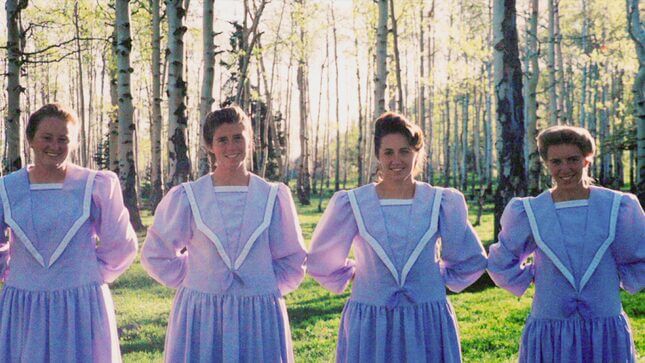‘Keep Sweet: Pray and Obey’ Examines a Polygamist Cult Through the Eyes of Women Who Escaped
"It’s really like a real-life Handmaid’s Tale," director Rachel Dretzin told Jezebel.
EntertainmentTV

Rebecca Wall Musser’s father had only two wives and, she says, wasn’t too happy about that. Within the closed polygamist society of the Fundamentalist Church of Jesus Christ of Latter-Day Saints, high ranking-men could accrue dozens of wives, which meant that women and girls were treated as human currency. When, at just 19, she was married off to the then-head of the church, 85-year-old Rulon Jeffs, the marriage boosted her father’s stock, and he was rewarded with a third wife of his own.
This trade of wives and daughters is “kind of like, ‘I’ll give you some if you give me some,’” Musser, who’s since left the church, says in the new documentary series Keep Sweet: Pray and Obey. “Even though it’s never spoken that way, I think that’s the general understanding.”
The series, which debuts on Netflix Wednesday, tells the story of the now-infamous cult, which made international headlines through the crimes of its leader, Rulon’s son Warren Jeffs, who spent years on the run from authorities, landed on the FBI’s Ten Most Wanted List, and was eventually sentenced to life imprisonment for sexually abusing two underage girls. The FLDS church became a cable news fixture, and the women of the community—instantly recognizable in their all-encompassing pastel dresses and teased bouffants—were often-silent symbols of the cult’s abuses. But in telling the story of the church largely from the perspective of a handful of former members like Musser and her sister, Elissa Wall, director Rachel Dretzin and co-director Grace McNally highlight the ways in which the women of the FLDS have managed to resist.
“I was just blown away by the fact that a story like this could exist in this time, in this place, in this country,” Dretzin told Jezebel. “It’s really like a real-life Handmaid’s Tale.”
-

-

-

-

-

-

-

-

-

-

-

-

-

-

-

-

-

-

-

-

-

-

-

-

-

-

-

-

-

-

-

-

-

-

-

-

-

-

-

-








































